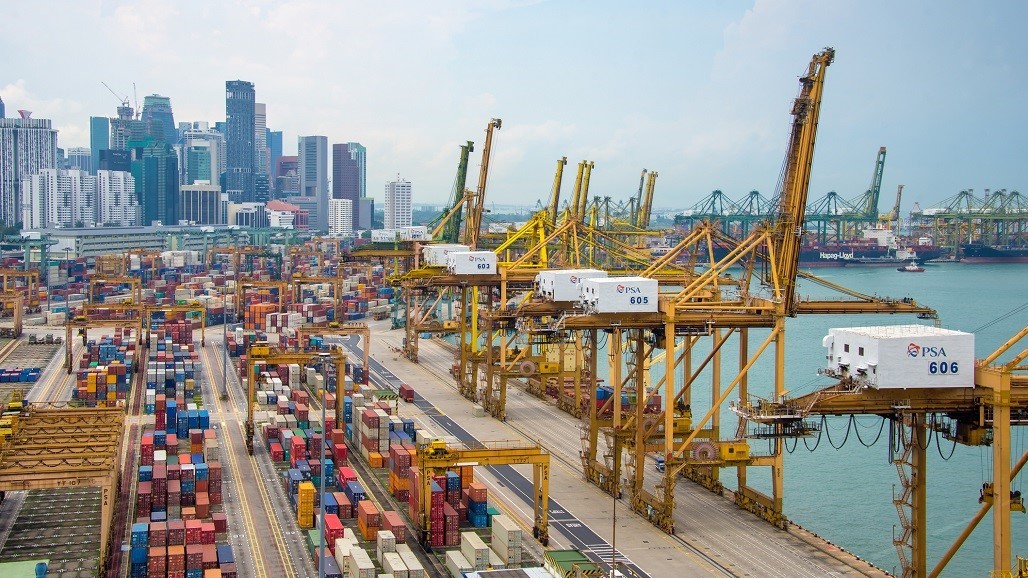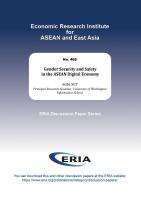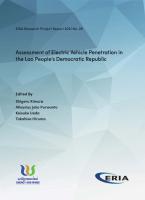
Singapore achieved the highest implementation rate at more than 90%, followed by the Philippines, Indonesia, Malaysia, and Thailand, which achieved high rates of more than 80%. Photo credit: iStock/Delpixart.
The average implementation rate in ASEAN is 79%, higher than the Asia–Pacific regional average of 64.9%.
A United Nations survey shows Southeast Asian countries are making good progress in reducing trade costs through paperless trade and other measures. The average implementation rate of ASEAN member states is 79%, higher than the Asia–Pacific regional average of 64.9%.
“Within the region, the implementation level of ASEAN is next only to Australia and New Zealand and East and North-East Asia subregions,” says the Digital and Sustainable Trade Facilitation in the Association of Southeast Asian Nations (ASEAN) 2021 report, which was jointly prepared by the United Nations Economic and Social Commission for Asia and the Pacific (ESCAP) and the ASEAN Secretariat.
Among ASEAN member states, Singapore achieved the highest implementation rate at more than 90%, followed by the Philippines, Indonesia, Malaysia, and Thailand, which achieved high implementation rates of more than 80%.
The report is based on a global survey that reviewed the progress of trade facilitation reforms. It covers measures under the World Trade Organization Trade Facilitation Agreement (WTO TFA) as well as digital trade facilitation measures associated with the Framework Agreement on Facilitation of Cross-border Paperless Trade in Asia and the Pacific, a UN treaty that entered into force in February 2021.
Reforms continue despite COVID-19
Despite the severe impact of COVID-19 on international trade, the global report says trade facilitation has made significant progress over the past 2 years. The overall implementation rate of measures increased by more than five percentage points between 2019 and 2021. However, stronger efforts are needed to facilitate trade for small and medium-sized enterprises and other groups and sectors with special needs.
“Countries should continue and sustain efforts to strengthen cooperation to adapt to the increasingly digital global economy while leaving no one behind,” said Armida Salsiah Alisjahbana, United Nations Under-Secretary-General and Executive Secretary of ESCAP.
The report finds that digital trade facilitation measures serve as a great catalyst for trade cost reduction. Empirical evidence shows that full digital trade facilitation implementation beyond the WTO TFA commitments could cut the average trade cost by more than 13%, 6.7 percentage points more than that could be expected from meeting requirements of the WTO TFA.
In ASEAN, the survey results indicate that most trade cost reductions are associated with paperless trade measures rather than conventional trade facilitation measures. Reforms classified under sustainable trade facilitation are “least implemented, particularly those targeting women and SMEs.” Full implementation of WTO FTA measures could bring down trade costs by 2.6%, while digital trade facilitation measures could reduce costs by more than 8%.
Cross-border paperless trade
Countries need to work together to develop and put into place the legal and technical protocols required for the seamless exchange of regulatory and commercial data and documentation. The report notes that the implementation of cross-border paperless trade is still low at 38%, with bilateral and subregional paperless trade systems remaining mostly partial or used on a pilot basis.
The report suggests that regional and subregional initiatives—such as the Framework Agreement on Facilitation of Cross-border Paperless Trade in Asia and the Pacific and the expansion of the Association of Southeast Asian Nations (ASEAN) Single Window Agreement—could support countries in gradually moving to less paper and then to paperless and cross-border paperless trade by providing a dedicated, inclusive and capacity-building intergovernmental platform.
The report cited that the framework agreement for Asia and the Pacific could help ASEAN to promote its initiatives and solutions as well as support interoperability between the ASEAN Single Window and other paperless trade systems in other parts of the world.
This article was first published by BIMP-EAGA on 15 February 2022.


